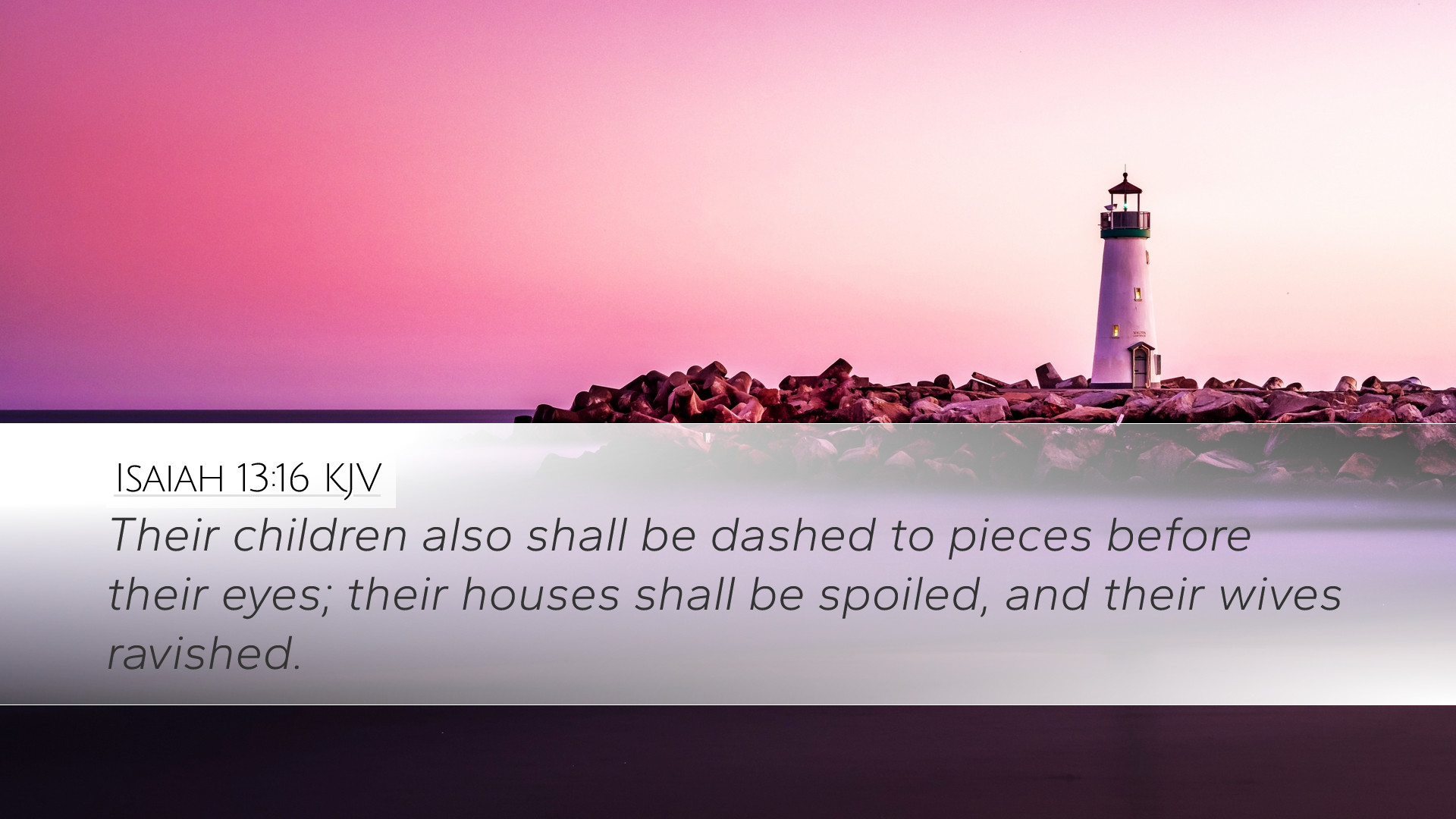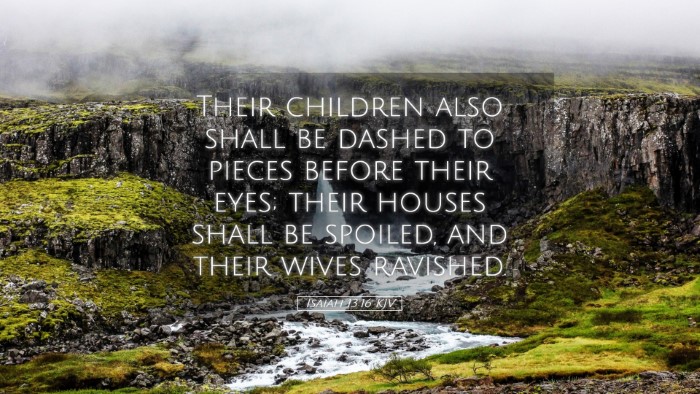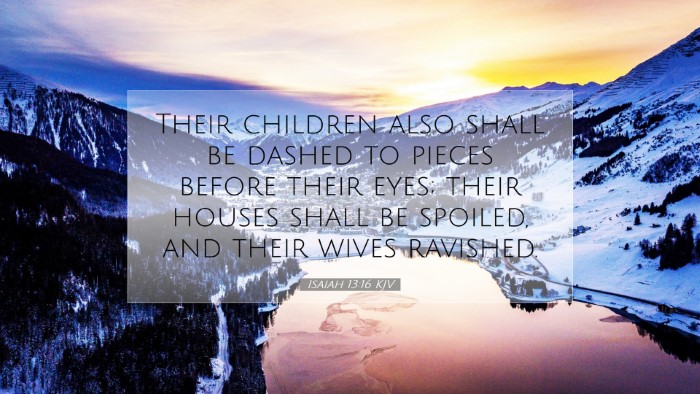Isaiah 13:16 - Commentary Summary
Verse Text: "Their children also shall be dashed to pieces before their eyes; their houses shall be spoiled, and their wives ravished."
Historical Context
This verse is part of a larger prophecy concerning the judgment upon Babylon, portraying the devastating consequences of God's wrath against a nation that exalted itself against the Lord. The imagery here is particularly stark, reflecting the intense suffering and terror that would come as a result of divine judgment.
Thematic Insights
- Divine Judgment: The severity of the imagery underscores the seriousness of God's judgment on sin and rebellion against Him. The reference to children being dashed to pieces draws a vivid picture of destruction and loss.
- The Innocents Suffer: The graphic nature of the judgment implies that the innocent will also suffer as a result of national sins, a theme that resonates throughout the prophetic literature in the Old Testament.
- Moral and Ethical Consequences: This passage illustrates the ramifications of moral decay within society, warning both the Israelites and surrounding nations of the perils of straying from God's decrees.
Commentary Insights
Matthew Henry: Henry emphasizes the tragic fate of Babylon as a consequence of its pride and defiance against God. He notes that the prophecy serves as a solemn reminder that divine retribution is inevitable for those who oppress God’s people. The destruction not only affects the adults but poignantly states that children, who symbolize innocence, also face dire consequences due to their parents’ sins.
Albert Barnes: Barnes interprets this verse within the context of Babylon's fall, highlighting that such destruction showcased God's righteousness. He comments that these verses exemplify the futility of defiance against God's will. Barnes illustrates that the suffering depicted is a direct overflow of the violence and immorality that characterized Babylonian society—a moral outcry that Heaven could no longer tolerate.
Adam Clarke: Clarke's commentary focuses on the physical and emotional devastation illustrated in the verse. He speaks to the brutal realities faced by individuals in times of war, echoing the sentiment that such calamities serve as warnings to other nations. Clarke remarks that the image of ravishment indicates not only the physical exploitation but also the systematic breakdown of familial and social structures that war inevitably brings.
Theological Reflections
This verse invites deeper theological reflection on the nature of God’s justice, mercy, and the complexities of human suffering in the context of divine providence. It serves as a cautionary tale for societies, reminding them of the outcomes of turning away from God and His commands.
Applications for Today
- Pastoral Care: Pastors can draw from the emotive language used in this verse to address the realities of suffering and injustice present in the world today. The understanding of God's judgment can be comforting, emphasizing that God does not overlook evil but is actively engaged in justice.
- Ethical Living: The implications of this prophecy call believers to live with integrity and to stand against societal injustices, modeling the righteousness that God seeks from His people.
- Hope in Judgment: While the verse depicts destruction, it is a part of a larger narrative that leads to restoration. Faithful students of the Word can remind others that through judgment, God’s ultimate purpose is redemption.
Conclusion
Isaiah 13:16 serves as a potent reminder of the consequences of sin, the gravity of divine judgment, and the severe impact of national unrighteousness. This verse challenges both individuals and communities to reflect on their own actions, prompting a return to a holy and righteous way of living in alignment with God’s will.
In the broader context of Scripture, this passage encourages believers to recognize the gravity of sin and to pursue faithfulness, while also holding onto the hope that God’s justice will lead to ultimate restoration for those who trust in Him.


